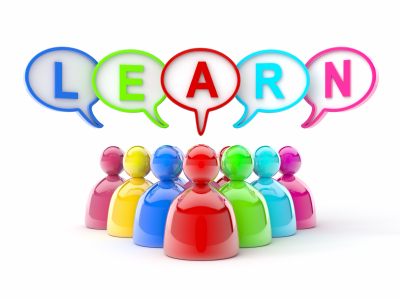When Ofsted released phase 3 of their curriculum analysis, (Dec 2018), I think that many of us waited with baited breath….what innovative new ways have our regulatory body uncovered that will aid us in the never ending cycle of curriculum development. Like the rest of us I was ready to disparage, to lambast, and to howl in derision at any findings published;
‘How will this look in practice’ I would shout in unison with my colleagues
‘This is just repackaging……’ I may call
But what is clear from the evidence-based findings, a successful approach to curriculum development and subsequent curriculum quality seems now to centre on;
- Subjects being mapped as individual disciplines
- Curriculum’s to address equality and disadvantaged pupils
- Regular curriculum Review
- Curriculum’s planned for progression
- Assessments inform curriculum design; curriculum’s not designed with assessment as end point
- Retrieval, Recall and Revisiting learned knowledge key part of curriculum
- Curriculum leadership is distributed
The Intent, Implementation and Impact structure was a refreshing one; they wanted schools and school leaders to take the overall lead and develop a bespoke curricula that benefited the pupils at their establishment. Hopefully gone is the time where one can get a curriculum off the shelf developed by gurus and experts and square-peg, round-hole it! They want to see us try and create and evolve something unique.
We have for some time now wrestled with how to develop a curriculum that frames two very distinctive key stages (2&3, we are a middle school) and has a major impact when transitioning on into a third, (they choose GCSE options with us in Y8). All-though schools must also face the same questions we used to guide our analysis;
What is our curriculum and why is it now important to reflect upon it?
What should our curriculum contain for all pupils to experience success (links to local needs and bespoke to our demographics/cohorts)?
How will SEND be encompassed during an analysis and design of a new curriculum framework encompass?
Does our curriculum go beyond what is being assessed?
Do we have a curriculum that incorporates, respects and applies prior and post learning experiences?
Do curriculum areas plan for progress? Is it sequential? Do we allow tangents within these curriculum’s?
Are Department heads able to justify their choices for the content of their curriculum’s?
Does the curriculum overview plan for cumulative dysfluency (gaps in acquisition of learning) and intervene within the main curriculum time?
I am not ashamed to say some of the answers to these questions were not all positive and have led to some probing questions regarding what we are delivering and its overall purpose for our pupils. Tom Sherrington in his engaging article around curriculum mapping uses the analogy of a trip to NYC when designing a curriculum; Why are we going in this direction, where are we going when we get there and what are we going to do to learn more. James Maxwell guides us through his development of a knowledge-rich curriculum, citing the important areas for their own curriculum;
-What core knowledge do our children need to know?
– Build cultural capital cumulatively
After much debate and rigour, staff and pupils surveys we have developed our very own Core Concepts; What we would like our pupils to know, apply and understand successfully. The question of what do we want the ideal Y8 student to be able to know, understand and apply when they left us was one used again and again; one that I will continue to use when we develop this with middle leaders.
The Core Concepts, (for us a more clarified version of aspects like Language of Learning and the 4Rs by Claxton), were about creating clear connections for pupils, staff and parents. That having high expectations did not change based on subject area and material being delivered. Our Intent is Planning for Progress rather than ‘getting through a curriculum’, which can seem to happen almost accidentally as more and more pressure comes from on high to ensure positive externally moderated outcomes. Here they are, our Infinity Curriculum;
-Etiquette: Good manners, being able to exist in social situations positively and understanding how our own attitude can impact on others
– Morals and Ethics: Understanding the views of others and using it to inform our own moral and ethical outlook
– Integrity: Knowing the difference between right and wrong and why it is essential we do the right thing
– Oracy and Vocabulary: Being able to use domain specific language successfully, confidence in speaking and listening to others
– Pride: In our learning, our community, our planet
– Ambition: Be aspirational in all we do and have high expectations in yourself and others
The next Steps, simple;
Time for Middle leaders and their staff to build these into their curriculum’s. To locate them, they already exist in some form, and evolve their impact and use. We have piloted with geography where these Core Concepts are evident in the curriculum, (see image), and it has led to our geography team realising that maybe they need to be more transparent when it comes to delivering such areas as good morals and ethics.
The goal

For our pupils and staff to realise that learning is not just to achieve a summative outcome/end point, that we can instill the virtues of learning in all pupils through these core concepts, and harness interest to help them transition to wherever they may go. These inferences have been drawn in correlation with Oftsed’s curriculum analysis, and maybe needed evidence-based research like this to initially guide us in what is a challenging but rewarding endeavour!
Let’s hope they agree when they visit 🙂
I will update
I hope my updates are a tad more regular than my blog posting has been!!!!


One thought on “An Infinity Curriculum”